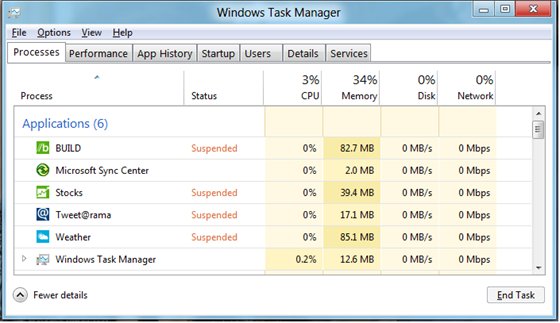It's that time again, time for another mini-revelation in regards to the upcoming Windows 8 operating system. This time around it's Microsoft's announcement that its goal is to suspend Metro apps that are currently not visible on the screen to curtail and, with any luck, cut completely their power consumption, all in the effort to bring improved and predictable battery life to portable devices.
The firm intends to make all this happen firstly by optimising background code execution, minimising battery consumption whilst maintaining multitasking, all accessible through new APIs for application developers. Secondly it will look to completely suspend and store in cache, non-visible applications, either in memory or back into persistent storage as needs must. The idea is that a device can then easily achieve the lowest possible power-state at any single point in time, as opposed to a greatly fluctuating battery life as various processes are introduced or terminated.

The approach itself is not dissimilar to Apple's iOS multitasking implementation, however will rely on applications that sit within the Metro UI system and are optimised, using the new APIs Microsoft has placed on offer; a strong indication that ARM implementations of the OS may solely function around the new UI and that perhaps, a level of application approval for Microsoft's application store may be in order.
For curious programmers, head on over and view a Microsoft code example.













